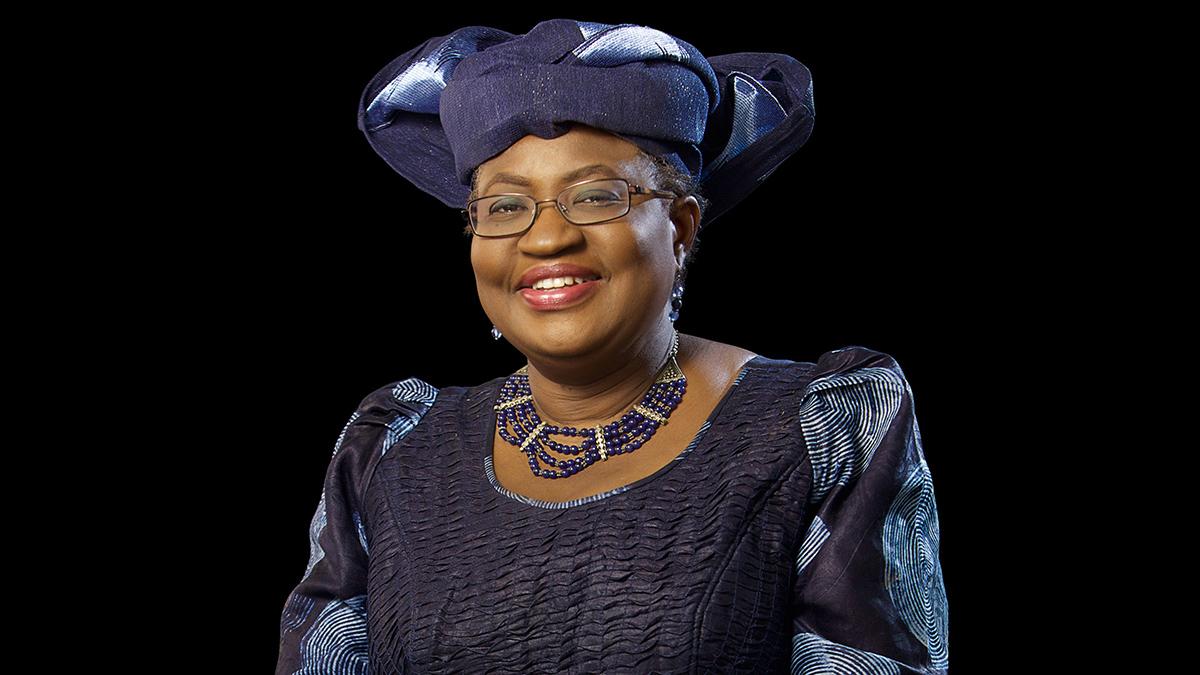Explore Our Bill Payment Services:

- Biography
- Nigeria
Ngozi Okonjo-Iweala: Biography, Net Worth, And Business Career
When you hear the name Ngozi Okonjo-Iweala, what comes to mind is brilliance, resilience, and reform. She is one of the few Nigerians whose influence stretches from the corridors of Abuja to the boardrooms of the World Bank and the halls of the World Trade Organization (WTO). Her journey is a masterclass in hard work, intellect, and an unshakable passion for making a difference.
Early Life and Education
Dr. Ngozi Okonjo-Iweala was born on June 13, 1954, in Ogwashi-Uku, Delta State, Nigeria. She was born into a family that valued education and community service. Her father, Professor Chukwuka Okonjo, was not only a scholar but also the traditional ruler of their hometown. Her mother, Kamene Okonjo, was an academic and researcher. Growing up in such an intellectually stimulating home, Ngozi developed a keen interest in learning, leadership, and problem-solving from an early age.
Despite the political and economic instability that characterized Nigeria in her childhood years, young Ngozi’s determination to succeed never wavered. She attended Queen’s School, Enugu, St. Anne’s School, Molete Ibadan, and the International School, Ibadan, where she stood out as a bright and disciplined student. Her teachers and peers recognized her as someone destined for greatness.
Her academic excellence earned her admission to Harvard University in the United States, where she graduated magna cum laude in 1976 with a Bachelor’s degree in Economics. But Ngozi wasn’t done yet. With an unquenchable thirst for knowledge, she proceeded to the Massachusetts Institute of Technology (MIT), where she earned a Master’s in City Planning and later a Ph.D. in Regional Economics and Development in 1981. Her doctoral thesis focused on credit policy, rural finance, and agricultural development in Nigeria — topics that would later define her professional path.
These solid academic foundations gave her both the analytical skills and global perspective needed to navigate the complex world of international finance and economic policy.
Early Career: From World Bank to Nigeria’s Finance Ministry
After completing her Ph.D., Ngozi Okonjo-Iweala began her illustrious career at the World Bank in 1982. As a young development economist, she quickly proved her competence and vision. Over nearly three decades, she rose through the ranks to become one of the institution’s most respected figures. She held several senior roles, including Vice President, Corporate Secretary, and later Managing Director for Operations between 2007 and 2011.
In her capacity as Managing Director, she oversaw operations worth over $80 billion, covering Africa, South Asia, Europe, and Central Asia. She led the World Bank’s response during the global financial crisis and the 2008–2009 food crisis, coordinating funding and policy strategies to help vulnerable economies survive turbulent times. She also chaired negotiations that secured $49 billion for low-income countries through the International Development Association (IDA).
But her heart never strayed far from Nigeria. In 2003, she accepted the call to serve as Minister of Finance under President Olusegun Obasanjo — becoming the first woman in Nigeria to hold that office. Her appointment was both groundbreaking and demanding. Nigeria was struggling with massive debt, poor fiscal management, and corruption. But Okonjo-Iweala stepped in with a clear mission: to fix the economy.
One of her most celebrated achievements was leading negotiations with the Paris Club of Creditors, which resulted in the cancellation of about $30 billion of Nigeria’s external debt — an achievement that placed Nigeria on firmer financial footing and boosted investor confidence.
During her first tenure, she also introduced policies that emphasized fiscal discipline. She championed a new rule: when oil prices exceeded budgeted benchmarks, the excess should be saved instead of spent recklessly. This principle later birthed Nigeria’s Excess Crude Account, a financial cushion that helped the country stabilize during oil price fluctuations.
After leaving the position briefly, she returned in 2011 under President Goodluck Jonathan as Finance Minister and Coordinating Minister of the Economy. This time, she focused heavily on transparency and anti-corruption reforms. She implemented the Treasury Single Account (TSA), which centralized government revenue collection and significantly reduced leakages. She also launched the Integrated Payroll and Personnel Information System (IPPIS) to eliminate ghost workers and save billions in wasted funds. Her efforts, though sometimes controversial, laid the foundation for greater accountability in Nigeria’s financial system.
Global Leadership and WTO Appointment
Dr. Ngozi’s reputation as a reformer, negotiator, and economic strategist did not go unnoticed internationally. Her long-standing experience at the World Bank and her success in Nigeria made her one of the most sought-after global leaders.
In March 2021, she achieved yet another historic milestone — becoming the Director-General of the World Trade Organization (WTO). This appointment made her not only the first woman but also the first African to lead the global trade body.
At the WTO, Okonjo-Iweala took charge at a time when the world was still grappling with the aftermath of the COVID-19 pandemic, trade tensions between major economies, and climate change concerns. She has since focused on reforming the organization to make it more inclusive, efficient, and responsive to the realities of modern trade. Her leadership has also emphasized equitable trade practices, digital transformation, and empowering developing countries in global trade negotiations.
Through her efforts, she continues to remind the world that trade can be a tool for peace, prosperity, and sustainable development — not just for the powerful, but for all nations.
Net Worth and Financial Standing
Estimating Ngozi Okonjo-Iweala’s net worth is not straightforward. Unlike many of her wealthy peers, her career has largely been in public service and international institutions, where salaries are modest compared to corporate executives. However, her experience, board memberships, and consulting roles have certainly contributed to her financial success.
Reports from various credible sources suggest that her net worth is estimated between $500 million and $600 million. This wealth comes from decades of global service, high-level appointments, speaking engagements, and positions on international boards. Her financial success, however, pales in comparison to her reputation — she is more admired for her integrity and accomplishments than for her bank balance.
Business, Boards, and Advisory Roles
Beyond government service, Dr. Okonjo-Iweala has also made her mark in the corporate and nonprofit world. She has served on the boards of several global organizations and companies, including Standard Chartered Bank, Twitter, and Danone.
She has chaired major international initiatives, including GAVI, the Vaccine Alliance, where she helped strengthen global vaccine distribution, particularly across developing nations. Her leadership there was crucial during the COVID-19 pandemic, ensuring that low-income countries were not left behind in vaccine access.
In Nigeria, she co-founded NOI Polls, a survey and research organization, and the Center for the Study of the Economies of Africa (C-SEA), both dedicated to policy research and data-driven governance. These institutions continue to shape policy discussions and provide insights into Nigeria’s economic development challenges.
Her participation in global boards has not only expanded her influence but also diversified her professional portfolio — showcasing how one can merge public service with business acumen to create lasting global impact.
Traits That Define Ngozi Okonjo-Iweala
Dr. Ngozi Okonjo-Iweala’s success is not accidental. It is built on a set of timeless values and personal principles that have guided her journey.
-
Resilience: As a woman navigating the male-dominated world of finance and politics, she faced intense criticism and resistance, but she never lost focus.
-
Integrity: Throughout her career, she has maintained a reputation for honesty, transparency, and discipline.
-
Innovation: Her policies are known for introducing structural solutions rather than temporary fixes — from the TSA to debt relief strategies.
-
Global Vision: She bridges the gap between developing nations and global institutions, using her influence to champion fairer systems.
-
Empathy: Beyond numbers and policies, she’s always been driven by a genuine desire to improve lives — especially for women, children, and the poor.
Challenges and Criticisms
Of course, no great career is without challenges. Okonjo-Iweala’s reforms often met resistance from entrenched interests who benefited from Nigeria’s old systems. Critics sometimes accused her of being too aligned with international organizations or of enforcing tough fiscal measures that were unpopular in the short term.
Her global roles also come with immense pressure — balancing the competing interests of developed and developing nations at the WTO is no easy feat. But through it all, she remains calm, confident, and committed to progress.
Legacy and Impact
Dr. Ngozi Okonjo-Iweala’s legacy transcends Nigeria. Her reforms reshaped Nigeria’s fiscal landscape, modernized public finance systems, and helped restore international confidence in the country’s economy. On the global stage, she continues to push for a trade system that is fair, inclusive, and sustainable.
She has also become a symbol of African excellence — proving that women from the continent can lead some of the world’s most powerful organizations with grace and competence. Her story continues to inspire young Africans, particularly women, to dream beyond their immediate environment.
Her work with think tanks, academic bodies, and international institutions continues to shape conversations around debt management, sustainable growth, and economic justice for developing nations.
Final Thoughts
Dr. Ngozi Okonjo-Iweala’s story is one of courage, brilliance, and integrity. From a small town in Delta State to the highest echelons of global finance and trade, she has defied expectations and redefined leadership. Her life teaches us that success is not just about wealth — it’s about impact, resilience, and legacy.
In a world often dominated by greed and self-interest, Ngozi Okonjo-Iweala stands tall as a beacon of hope — proving that good governance, honesty, and vision can indeed transform nations and inspire generations.









